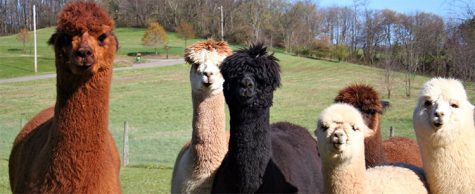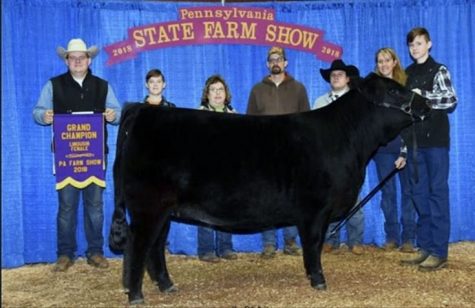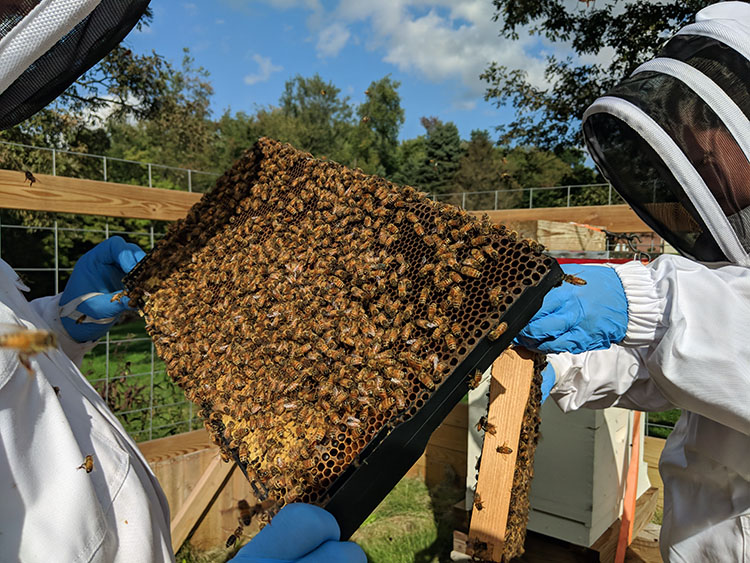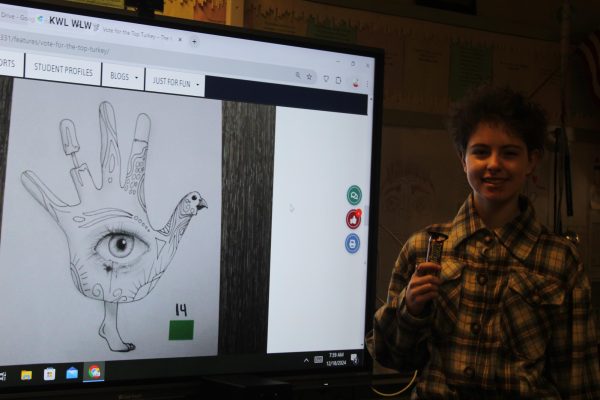These Pets are the Bee’s Knees
Have you ever wondered about the bees that make your honey? Or the alpacas you get your yarn from? The chickens for your eggs? The cows you get your beef from? Well some of your fellow classmates could tell you the entire process.
Senior Liz Getz has had chickens for about ten years, and started keeping bees this past May.
“We have two hives right now and we have 12 chickens including one rooster,” said Getz
“To tell the hives apart we painted the one part of the telescoping cover of the hive, so one is red and the other is black,”
Although Getz usually gets about $4 a dozen for eggs from her neighbor she usually ends up giving them away. Her family is planning to begin harvesting and selling honey this spring or fall.
“The bees are actually really interesting. My parents, my Grandpa and I all took a class (yes, we took a class) about keeping bees, and the stuff we learned about them is just so fascinating,” Said Getz
“I also find it fun to see if I can spot the Queen bee whether she is marked or not before anyone else does,”
Another student, freshmen Shannon Holmes has 18 alpacas. Every spring her family shears them, makes their fleece into yarn, and sells it in January at the Pennsylvanian State Farm Show.
Eighteen Alpacas may seem like a lot of work but not for Holmes.
“Alpacas are fairly easy to take care of. My least favorite thing is cleaning up after them, “said Holmes
“We spray them with water in the summer to keep them cool and some of them like to stand up on their hind legs have the bellies sprayed,”
Sophomore Austin Miller has 200 cows! His family keeps some for show, while others are sold for beef. The family also does keep some beef.
“They are of the limousin breed, which is rare for around here,” said Miller
They also have other breeds such as mainetainer, simmental, chi, simsolution, limflex. Miller and his family has two farms. The first farm they live on. It has all the cows that go to the butcher and the cows getting ready for show. The other farm has cows that are bred for calves and bulls.
“It’s a lot of fun to live on the farm because I can go out whenever i want to and pet, work, or play with the cows and don’t have to have someone drive me there,” said Miller
Bees, alpacas, cows and chickens may seem like more work to take care of then our usual cats and dogs, but to these students it’s worth it.
“They all bring a smile to my face and anyone who comes to our home, even if they are scared of one of the animals (mostly the bees). That is why I love to talk about them so much, and informing people about how beneficial these animals are is just awesome,” said Getz








